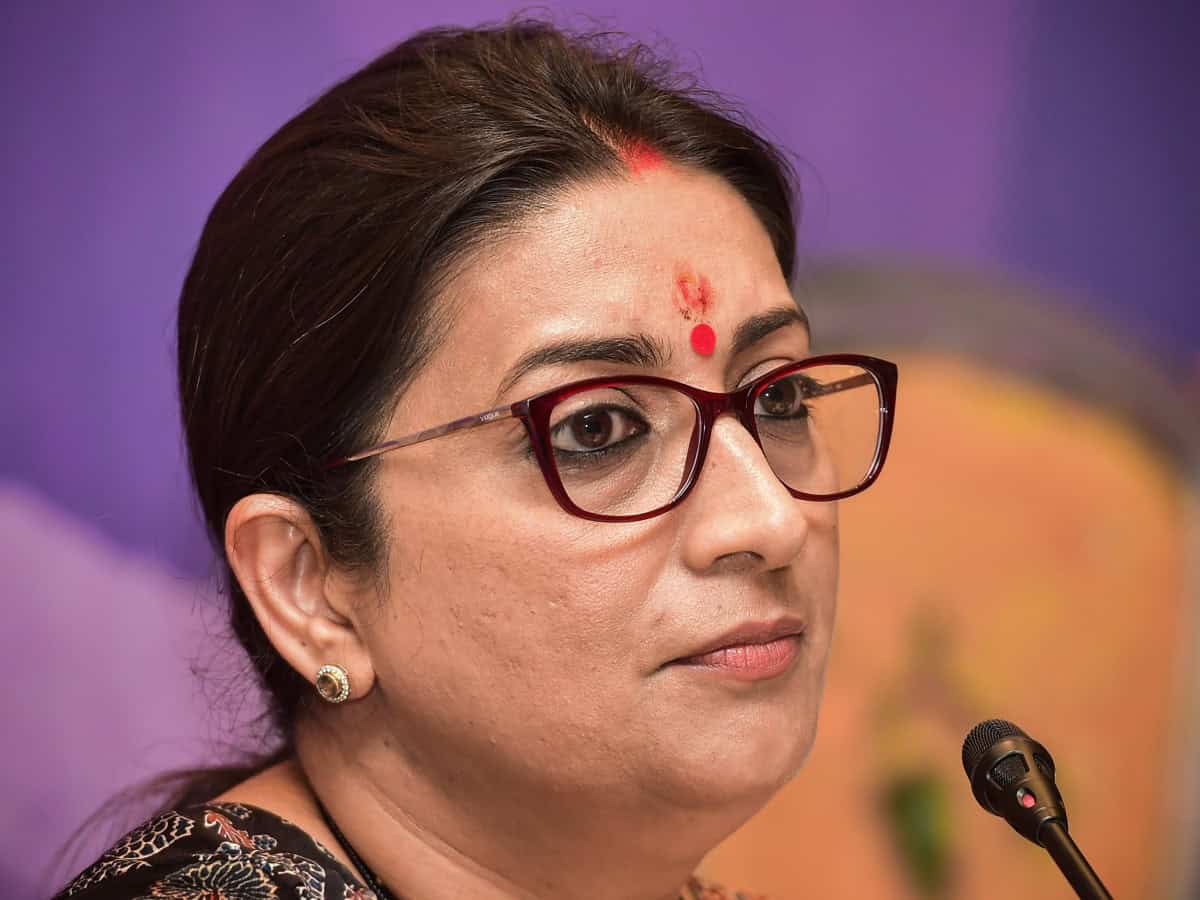
New Delhi: Senior Bharatiya Janata Party (BJP) leader Smriti Irani said on Thursday that the Waqf (Amendment) Bill will ensure equal representation for Muslim women on the Waqf Board.
The Bill, which seeks to streamline the registration process of Waqf properties through a central portal, among other things, was presented in the Parliament on Thursday.
Speaking to IANS, the former Union Minister said: “Muslim women have a lot of expectations from this Bill. Earlier, Muslim women were not given proper representation on the Waqf Board. But this Bill proposes a new avenue for women which is a matter of happiness. I express my gratitude to Prime Minister Narendra Modi for this.”
Smriti Irani also said that through this step, the Central government has made an attempt to provide an administrative structure for the Waqf Board.
“PM Modi deserves appreciation for this step. On many occasions, the properties of children and women in Muslim families are sold off without their permission. But this Bill seeks to adopt a tough stance on this issue so that such steps are not taken,” she added.
The Waqf (Amendment) Bill, 2024, the first significant piece of legislation introduced by the Modi 3.0 government, has also sparked considerable controversy among Muslim organisations and the opposition.
The new Bill proposes to rename the Waqf Act of 1995 as the Unified Waqf Management, Empowerment, Efficiency, and Development Act.
Union Minister of Minority Affairs, Kiren Rijiju, has agreed to refer the Waqf (Amendment) Bill, 2024, to a joint committee of Parliament, which will include representatives from all political parties. The committee will be constituted by Lok Sabha Speaker Om Birla.
Waqf refers to property dedicated exclusively to religious or charitable purposes under Islamic law. Once declared Waqf, the property cannot be revoked. The amendments included in the Bill seek to address this issue.
There are around 30 Waqf boards in India, managing properties that cover over 9 lakh acres, with an estimated value of Rs 1.2 lakh crore, making them the third-largest landowners in the country after the Indian Railways and the Defence Ministry.

